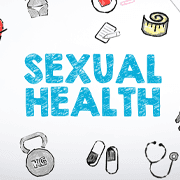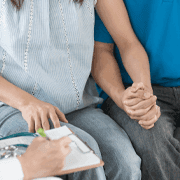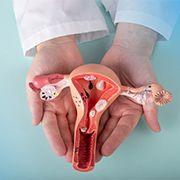Itchy Anus as a Symptom of STDs: What to Know?
In This Article
Itchy Anus as a Symptom of STDs: What to Know?
Dr. Sameena
Updated on March 11, 2024
Medically verified by Dr. Arya
Fact checked by Dr. Pournami

Wellness
5 min
Do you feel an itchiness in your anal area? Believe it or not, that annoying itch might be trying to tell you something important about your sexual health.
Karepedia is here to explore why an itchy anus could be linked to sexually transmitted diseases (STDs).
Curious to know more? You’re in the right place.
This blog is all about understanding, addressing, and taking care of an itch that might be more than just a minor annoyance.
Now, let’s break down the connection between that persistent itch and what it might mean for your sexual health.
What Is Anal Itching?
Anal itching is a skin condition that affects the perianal area, which may be worse at night or after pooping. It can be a symptom of a sexually transmitted disease (STD)
Causes
-
Anal herpes: viral infections which cause reddish sores and blisters with discharge and pain, transmitted through oral, vaginal or anal sex.
-
Gonorrhea and chlamydia: bacterial infections, transmitted through anal sex, discharge with pain and swelling, at times can be asymptomatic.
-
Anal warts: caused by papillomavirus through oral, genital, anal sex with someone who carries the virus.
-
Syphilis: bacterial infection causes skin rashes, fever and anal itching.
-
HIV: viral infections which weakens your immune system and makes you susceptible to other infections and allergies, causing Pain and discomfort during anal sex, itching and rashes.
It can also be due to other causes like:
-
Pubic lice or tiny bugs which colonize genitals and cause low grade fever
-
Hemorrhoids: bleeding with pain and constipation
-
Hygiene issues or excessive wiping
-
Yeast infections
-
Psoriasis or skin conditions
-
Allergens due to soap, fabric or food
-
Pin Worms or intestinal parasites
Importance of getting tested for STDs
-
Testing can help diagnose the infection early and prevent further spread to your sexual partners.
-
STDs can be treated with antibiotics or antiviral medications but early detection and treatment are critical for effective management.
-
Practicing safe sex by condoms and getting vaccinated against certain STDs like herpes virus and hepatitis B.
-
Limiting your sexual partners
-
Getting tested regularly if you are sexually active
-
Communication and openness are essential to build trust and intimacy in your relationship while preventing the spread of infections and diseases.
 10mint
10mintSexual Health Matters: How To Maintain Your Sexual Health ?
 10mint
10mintYour Guide to Sexual Health Screening and Preventive Measures
 10 mints
10 mintsSTDs in Women: Comprehensive Guide on Symptoms and Treatments
Get a Callback Now
Treatment Options
Treatment for an itchy anus depends on the condition.
-
Anal herpes: Antiviral therapy.
-
Gonorrhea: Antibiotics, such as azithromycin and ceftriaxone.
-
Anal warts: Topical ointments, cryotherapy to freeze warts off, and lasers or electrical currents to remove them.
-
Pubic lice: Specialized shampoos and removing lice with tweezers.
-
Hemorrhoids: Soaking in a warm bath, eating more fiber, or getting a rubber band ligation to remove them.
-
Pinworm: Antiparasitics.
-
Yeast infection: Antifungal oral medications, creams, or ointments, and oral probiotics
You can try avoiding harsh soaps, scents and deodorants. Moreover, always choose to wear cotton underwear and avoid dairy products, carbonated drinks, caffeinated beverages and acidic or spicy foods.
Home remedies to combat the itching
-
Keep your skin moisturised.
-
Eat food high in fibre like leafy vegetables
-
Avoid scratching to prevent injuries or skin damage
-
Don’t use any laundry or hygiene products with artificial fragrances or colouring
-
Immerse yourself in an oatmeal or baking soda bath.
-
Try anti-itch creams.
-
Take antihistamines to reduce itching and other symptoms.
Anal sex is a common way of transmitting STDs, especially if you engage in unprotected sex or have multiple sexual partners.
The anus is particularly susceptible to infections and tears during sex, which can increase the risk of STD transmission.
Therefore, it’s essential to use condoms or other forms of barrier protection during anal sex, and get tested regularly for STDs if you are sexually active.
Using plenty of lubrication, starting slowly, and communicating with your partner can help reduce the risk of injury and infection.
Call your healthcare provider if your itchy anus doesn’t improve with treatment, your itching gets worse after treatment or the area looks infected (discoloured skin, irritation or swelling).
Anal itching is a skin condition that affects the perianal area, which may be worse at night or after pooping. It can be a symptom of a sexually transmitted disease (STD).
Anal herpes is transmitted through oral,vaginal or anal sex.
Testing can help diagnose the infection early and prevent further spread to your sexual partners.

